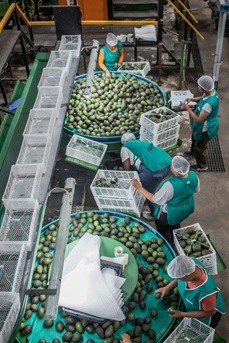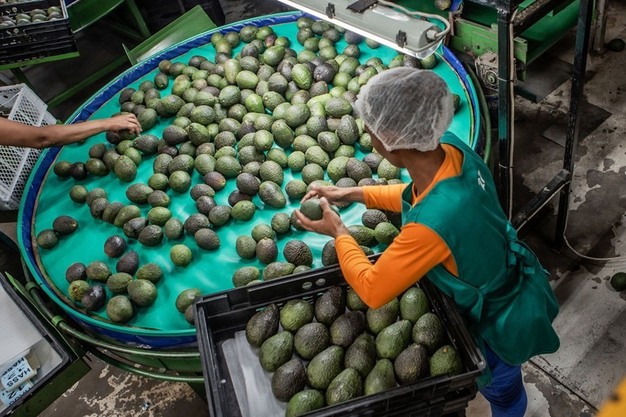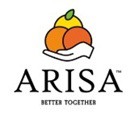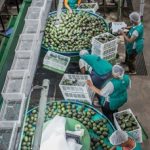 © Arisa PackhouseIn Buffeljagsrivier, in the Southern Cape, the Arisa packhouse is running avocados, Hass, Lamb Hass, Gems, mostly over the line. “There has been very strong growth in avos in this area over the past few years, after very large plantings stretching from Swellendam to Mossel Bay,” says Etienne Brewis, general manager at the packhouse which belongs to ANB Investments and Lucerne Agri Investments.
© Arisa PackhouseIn Buffeljagsrivier, in the Southern Cape, the Arisa packhouse is running avocados, Hass, Lamb Hass, Gems, mostly over the line. “There has been very strong growth in avos in this area over the past few years, after very large plantings stretching from Swellendam to Mossel Bay,” says Etienne Brewis, general manager at the packhouse which belongs to ANB Investments and Lucerne Agri Investments.
Right: avocado volumes have doubled since last year
In winter, they pack approximately 16,000 tonnes of predominantly soft citrus grown on Indigo Fruit Farms, also part of the ANB Group, and in springtime and in summer, it’s the turn of avocados, which in their area doubled from last year to this, as well as stone fruit. It’s a category that demands an elimination of all drops and a slower pace, running up labour costs, but gratifying to do well, Brewis says.
“Packing summer fruit is a big focus for us,” he says. The avocado packline could well switch to pears, for example, and their planning for next year includes the first commercial yellow and red kiwis, grown in a wide region from Grabouw to Wilderness.
“Kiwis are where avocados were three years ago in terms of the level of interest and the rate of new plantings, and the first results are looking positive.”
 © Arisa Packhouse
© Arisa Packhouse
The growth of soft citrus is less aggressive than avocados in their area, but there is still expansion. Arisa packs Satsumas in April and runs through various cultivars, like RHM and the Leanri, to their majority Nadorcotts in August and September; the cultivar’s Southern African license is owned in-house.
The packhouse has a cooling capacity of 8,000 bins in total, holding 320 pallets, as well as Smartfresh and forced cooling facilities. Extensive dry stock storage on the packhouse’s 3 ha site ensures a fast flow-through from arrival to distribution, he notes, while their sister facility, CAPAC in Robertson, receives any overflow.
Quality issues a learning curve
“The Southern Cape had a pretty dry season, very little rain,” he observes. “The advantage was a lot of harvesting days and very little disruption in our citrus packing schedule. We experienced some quality issues with the citrus this season. As one often can’t see these issues in the packhouse, and they only develop later, this is something we’ll watch. But that’s part of the learning curve. We’re not an old industry; there’s still a lot to learn. There’s a complexity here that we are untangling together with our growers and the wider industry.”
For more information: Etienne Brewis
Etienne Brewis
Arisa Packhouse
Tel: +27 28 512 3500
Email: [email protected]
https://arisa.co.za/
